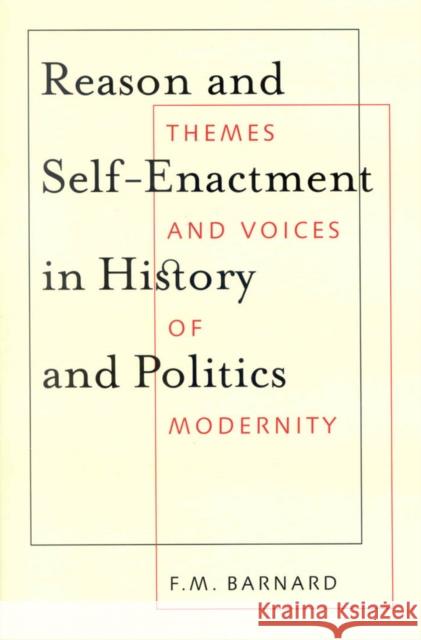Reason and Self-Enactment in History and Politics: Themes and Voices of Modernity » książka
Reason and Self-Enactment in History and Politics: Themes and Voices of Modernity
ISBN-13: 9780773529656 / Angielski / Twarda / 2006 / 288 str.
F.M. Barnard goes beyond the seventeenth-century understanding of the social contract by making national self-enactment contingent on public reasons for individual liberty within civic mutuality. He examines the possibilities and limits for a self-enacting, principled politics, acknowledging reason and self-enactment as central concepts of historical and political thinking. But he qualifies each by viewing the former as practical reason that only indirectly acts as a cause and the latter as operating in relation to reciprocity with the other. Accordingly, enactment is opposed to determination, purposive action to functional processes, and historical consciousness to historical inevitability. Barnard also stresses that unitary truths and moral perfectionism are not the concerns of politics. Reappraising basic political principles and constructs, he argues for bridging differences among a plurality of truths and forming practical judgments by the cultivation of a sense of situational appropriateness.











